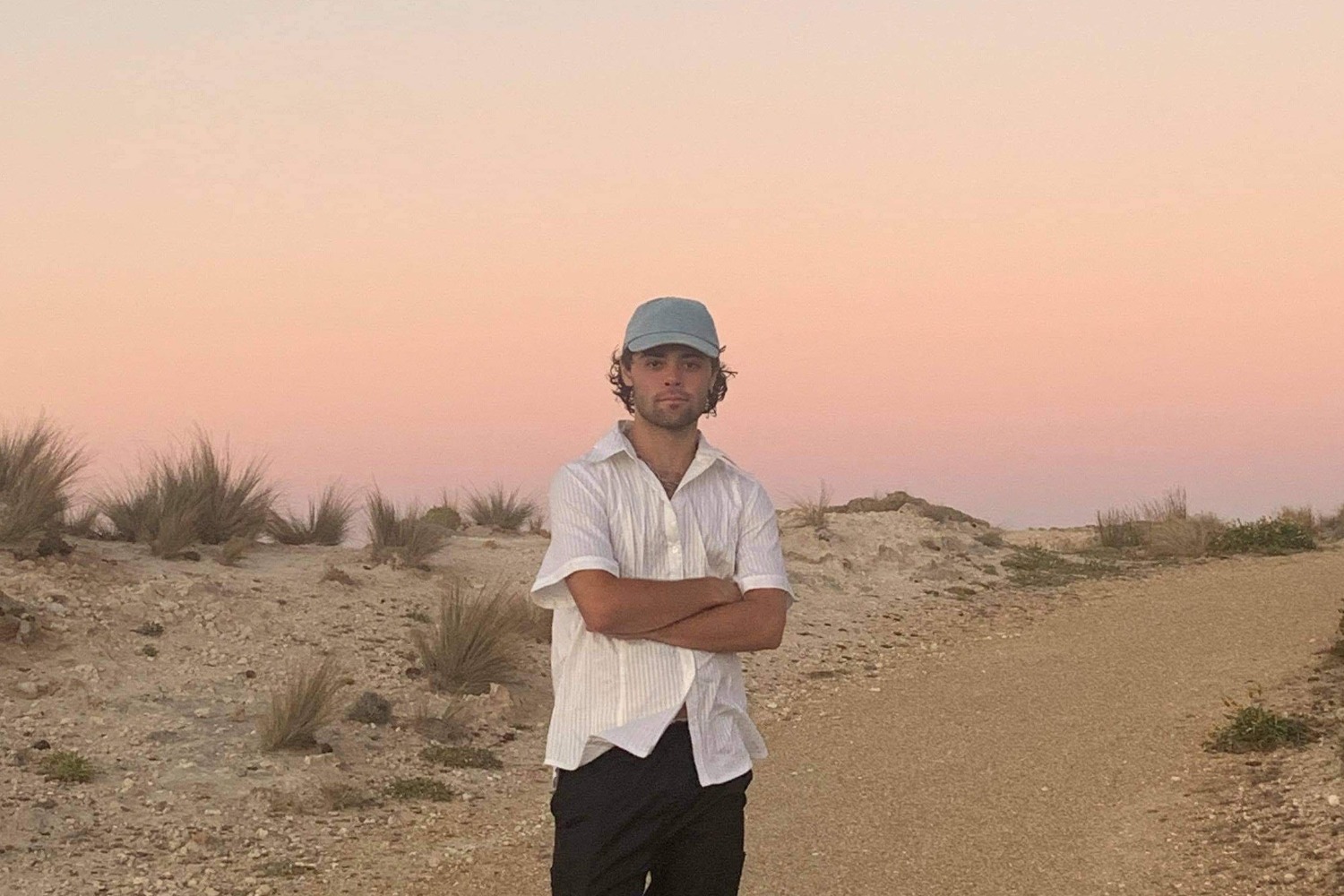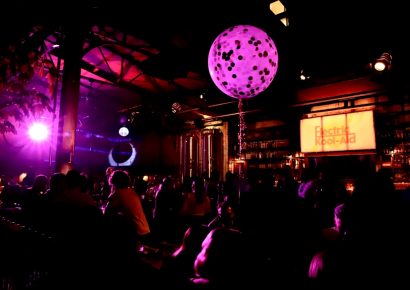Synapse is a music platform and event installation project founded by 22-year-old neuroscience student Noah McShanag-Munn.
He began the project in 2020 and, though stifled by the ever-uncertain Covid-19 pandemic, is persisting with trying to bring its unique ideology to Melbourne’s underground dance scene, endeavouring to change how we experience music listening and festivals.
Having hosted charity events for the Bushfire Appeal in 2020 and Pay the Rent in 2021, as well as showcasing an installation at the New Year’s Eve Festival Tabula Rasa, Synapse is now beginning to pop up on the festival calendar and has huge aspirations for the year ahead.
Keep up with the latest music news, features, festivals, interviews and reviews here.
While completing his neuroscience degree, McShanag-Munn’s inspiration for amalgamating his passion for music and science was born when he identified a need for the sciences to be more accessible.
“There is this rift between everyday people who don’t have access to a tertiary education or a university library, and those who are in the scientific field,” he said.
“Scientists are always speaking to other scientists and it’s ridiculous! Scientific theory can be highly utilitarian and benefit everyone if we provide them with the resources to access it in an engaging medium.”
McShanag-Munn insists he isn’t on the dance floor handing out worksheets. Instead, Synapse aims to approach music and installations from a scientific perspective. From contemplating the benefits of eco-therapy in choosing locations, to using scientific theory to determine how installations may best evoke certain mind-body states, to considering how an informative element can be embedded into the sonic experience, in all cases, the science quietly compliments the music.
“I want to show how Synapse and this kind of application of the sciences have the potential for social utility and how non-traditional modes of communicating science are instrumental to learning. To have this ability to convey science to people is something I am really interested in,” he said.
Synapse recently featured an installation at the New Year’s Eve festival Tabula Rasa, running a tea room designed under the lens of scientific theory with the aim of imbuing community and providing an antipode to the dancefloor madness.
View this post on Instagram
“We wanted to create a place to meet someone new and enter a meditative state, and science guided how we could actualise this,” he said.
“Community, cognitively speaking, is so important. This was all directed by what I had been reading at the time, Dunbar’s theory, which describes the ideal conditions for community. It was designed to house 150 people, which according to Dunbar is the maximum amount of human-to-human connections we can have. We used soporific music, like a lullaby at the end of the night, with no DJs playing as that would create a subconscious power structure. There were low lights, even surfaces and symmetry to create a universal sensory experience. Although this deliberation was not overt, hopefully everyone still got to find enjoyment in the thought behind it.”
Prioritising a scientific approach intersects with Synapse’s interest in nature and the power of eco-therapy, which informs all of the project’s releases and live events. McShanag-Munn has directed a series of mixes from DJ artists, all inspired by wildlife. From the native Australian Wattle to the shallow shores of the east coast, the music aims to evoke a connection between listeners and the natural world.
“When you listen to the mix, you can picture the organism or the natural space that the artist is envisioning in their creative process. It is a way you can ground yourself in nature, perhaps from your home,” he said.
“At events, we have always tried to make the spaces we use as green as possible. Eco-therapy is something I have been reading a lot about recently. Green drenching, where you’re surrounded by nature, is enormously important for the mind.”
McShanag-Munn praises the unique conditions festivals and events similar to his own can provide to achieve the goals of Synapse.
“Music and festivals are a deeply liminal time for a lot of people,” he said.
“It is where people are at their most open-minded and experience a lot of their introspection. To be able to create things with purpose and communicate our ideas in a palatable manner… that is what our team at Synapse is about, and what these spaces allow”.
Check out Synapse’s Instagram here to look out for their upcoming events.

